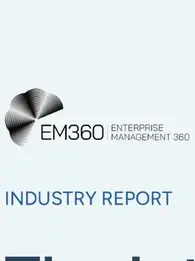
In a digital world where almost every business is running its business operation through its website, taking actionable steps to shield your website from being hacked is very important. Do you know that in the UK, about 81% of businesses that suffer from cybersecurity attacks are small to medium-sized businesses? According to IBM’s chairman and CEO, “Cybercrime is the greatest threat to every company in the world.”
So, if you’re one of those business owners who still believe that only adult sites, gambling, and other juggernaut business enterprises are the targets for cybercriminals, well, that beat sounds changed. Cyber hackers now leverage company websites to distribute their malicious content and your small business website is not out of sight.
Hackers are constantly leveraging advanced AI automation to peruse your company’s website for vulnerabilities. Thus, you must create a robust counter-defence strategy for you and your user's ( visitors and customers) safety.
The rising tides of cyber threats on online businesses:
In 2022, it was revealed that the total cost of cybercrime in the UK is estimated to be £27 billion per year. That same year, According to the Australian Cyber Security Centre (ACSC) annual report, it was reported that they received over 76,000 cybercrime reports which is a 13% increase compared to 2021.
“The reality of cyber risks has started to bite in a much more public way,” said Christiana Christmas — assistant director general for international and national partnerships at the ACSC. She also added at an event to mark Cybersecurity Awareness Month in October that “ The trends we’re seeing are becoming worse in terms of the volume of reports and the increase in financial losses.”
Statistically, it’s crystal clear that the past decades have experienced an exponential growth in cyber crimes and this has caused so many companies significant damages.
What happens when your website is hijacked by cyber criminals?
1. Both You, your team members and your customer's information could be at risk:
When your company experiences a breach in its website security, hackers may have access to you and your customers' personal information. Unarguably, today’s companies run more online activities compared to a decade ago.
So, Whether your company is dealing with e-commerce services or specific services some of the company activities would involve customers filling in their personal information through a page provided on your website. Sometimes, they fill in their payment information, mailing information, and a lot more depending on what is required of them.
Now having built a list of customers over the year, Imagine if a ruthless hacker gets hold of their information, of course, they’d maliciously steal not just their identity but also make fraudulent purchases with their payment details. Thus, prioritizing your website security is of the essence.
2. Your all-time built reputation could be ruined irredeemably:
Yes, the all-time glowing reputation you’ve tirelessly built could irredeemably be damaged. That’s how terrible it could go. In today's business world where online competition is on a high and people are dealing with only companies they trust, if your website gets hacked, it’s pretty much going to be difficult for your company to run its usual business operations successfully. Especially if it’s a public figure; it’ll be trending on news reports and other mediums.
Consequently, this event could result in customers losing trust in your company’s operations or actions and might cause them to avoid any further dealings. And this could strongly affect the company’s reputation.
3. Recovery and Cleanup is very expensive:
In most cases, recovering and cleaning up hacked company websites isn’t impossible but it’s very expensive. Those hackers demand a huge sum, after which you still spend on cleaning up every bad code, and even testing every nut and cranny of the website to ensure that they’re completely free from malware or any form of attack.
4. Hackers' attempts would increase:
According to this 2021 CBS NEWS report, it was revealed that about 80% of ransomware victims suffer repeated attacks. One key fact about cyber hackers is that they are always growing more sophisticated. So, just because your company website was attacked and it was settled doesn’t mean you won’t get attacked again. They always keep coming which is the more reason why you need to keep prioritizing your website security.
Common business owner's misconceptions that facilitate website's vulnerability to cyber attacks:
The increasing advancement in technology has helped in curbing so many thousands of cyber attacks on some companies' websites but that shouldn’t be a dose of relaxation for any online business owner.
The harder technology goes in building resilience against cyber attackers the more sophisticated cyber attackers grow in their criminal skills. Meanwhile, here are common vulnerabilities in websites that so many business owners and team management ignore that give room to cyber attacks;
i) Hackers are only interested in big companies and not startups
Typically, this is one of the “good words” hackers love hearing. And it has made so many businesses running online a hub for attacks. As a business owner, are you aware that hackers don’t care about your company’s growth but your vulnerabilities? Once they get to your company’s website they’re always excited to disrupt everything for their gains — like your customers' bank data, addresses, and a lot more information. Why? Once they’re armed with your customers' data and personal data they can easily ruin both your business and customers alike.
ii) I’ve updated my company website, so I need not to worry:
It’s completely wrong to still think that just updating your company’s website is enough to keep you from worrying about cyber hackers.
While updating your website is one of the good ways of securing your company’s website, it’s not the alpha solution to completely kick them off. Come to think of it, before updating your website, how sure were you that hackers haven’t penetrated and even created a “ back door” for their entry points? Hackers are growing daily in a more sophisticated manner to ruin companies. Thus, having such a conception could ruin your business.
iii) I ensured my website was secured when built, so I need not worry now:
Just because your website was built by professionals doesn’t make it hack-free. As aforementioned, hackers attack websites globally every 39 seconds, this means that your website is not safe. Let’s take a look at the phone apps, they require updates as often as possible, so your website needs updates too. Just relying on the efforts of experts who built your website and not scheduling a regular maintenance culture for your website can cause irreparable damage to the company.
iv) I don’t keep customer data on my website, so my customers won’t be affected:
This is another misconception that has made businesses run out of trust. Just because you don’t store your customers' information or details on your website doesn’t make them hack-free. But have you ever thought of this: What if they’ve cloned your website and made it look exactly like yours and started messing with your customers? Consequently, this could damage your integrity and long-built business reputation.
v) If they break in anytime, I’ll just fix it:
Do you think that fixing bug-infiltrated or hacked websites is a walk in the park? Of course not. It’s not that easy. Come to think of it, hackers aren’t stupid. And you might lose your whole investment to those criminals if you still think this way — especially when your developer didn’t use the appropriate source code repository and backup system.
Why wait till they break in? Advisably, It’s cheaper to practice a schedule maintenance culture than to pay heavy ransomware to criminals
vi) My website’s SSL is an alpha protector, it keeps me secured:
Don’t be misled, SSL alone isn’t sufficient to completely save your websites from intentional hackers. Yes, the Secure Socket Layer is a good security shield that helps protect the integrity of data in transit between the web server( host)and the client, it can't protect a website from malware infection.
Thus, it’s utterly wrong to perceive it as an alpha protector. Unfortunately, many online business owners still that a website is secure just because it has implemented an SSL certification — a very big problem
How to know if your company’s website has been hacked or under attack:
Before sweeping your room, you need to be sure that it’s; the same can be applied to your website — before delving into cleaning your company website, you need to verify if you have an unwanted guest (bugs) or if it’s breached. Here is a detailed guide shared by Hostinger — explaining in depth how to diagnose if your company’s website has been breached:
- Alerts about hacking from browsers and search engines.
- Links redirecting to shady websites.
- High volumes of traffic from other countries.
- Defaced or broken webpages.
- Slower load time than usual.
- Google blocklist warnings.
- Sent emails end up in spam.
- Website takedown by hosting provider.
- Unsavory advertisements.
- White screen of death.
- Random code fragments appear on the header or footer.
How SMEs can build a robust defence strategy to shield their company’s website against cyber threats.
1. Ensure that your website's software is updated regularly
Considering the rate at which cybercrime is unendingly increasing, as a small business owner it’s advisable to prioritize your website cybersecurity. One of the effective ways to shield your website from being infiltrated by hackers is by regularly updating your software when due. Outdated website software is often under hacker attack and your data safety ( both users' personal and financial information could be compromised).
For safety reasons, create a working plan that can help you identify any outdated software and security measures to implement a swift repair immediately.
2. Ensure you have Secure Sockets Layer(SSL) installed on your website
The benefits of implementing Secure Socket Layers cannot be overemphasized. It plays a vital role in encrypting crucial data such as Usernames, passwords, and customer credit cards; and more importantly, it authorizes access to only designated users. As a business owner, it’s best to opt for the appropriate SSL based on your company's business size. Well, here are some basic features to consider when purchasing SSL for your business website:
- Check their Validity period.
- Check the Encryption strength.
- Check their reputation and price.
- Check for compatibility.
- Check for warranty and their customer support prowess.
- Check for their Certificate Authority.
3. Ensure that your passwords are unguessable
Hackers are getting more heated and intentional as they embrace advanced technology to passwords. To shield your website against such brute force it’s advisable to make your passwords unguessable — using a combination of lowercase, uppercase, numerical, and special characters. More so, ensure that your password is about a minimum of 10 characters word length and this policy should be maintained across everyone who has access to the website.
4. Backup your website as frequently as possible
As a smart small business owner, have a scheduled plan to regularly back up your website files should your website become inaccessible or your data get lost. Also, make use of reputable web hosts that can completely provide your website backups with their servers.
5. Leverage web application firewalls WAF
Implementing web application firewalls is another sure way of protecting your websites against hacks. Typically, the basic function of WAF is to provide primary defence between the website's server and the website's traffic. It helps in identifying and providing shields against malicious traffic.
Meanwhile, it’s important to install the right WAF with the necessary features that can work with your nature of traffic and business. In other words, implement the WAF that guarantees strong safety and security for your website's business.
While the WAF for e-commerce and service provider businesses aren't the same, here are necessary properties you need to confirm before implementing WAF:
1: It must be cloud deployable.
2: It must be intelligent and proactive.
3: Its customized policies must suit your business nature
4: It must be a kind that can be managed by a certified security expert.
6: Manually accept on-site comments:
With the level of sophistication hackers are operating with, allowing people to post comments directly to your website could create room for malicious links which your target or regular website visitors click on this malicious link and stand the risk of exposing their data.
Manually approving comments before they appear on your website is a smart way to reduce website hacking. Additionally, you can leverage anti-spam software or plugins ( for example Akismet for WordPress), you can also design your website in a way that your customers will seamlessly register before commenting or turn off the comments section once in a while — these tactics really can save both you and your visitors from hackers.
Conclusion
There are no turnkey solutions to security; instead, it’s a combination of people who are willing to do the processes, and technology that helps create a manageable and scalable approach to security for any organizational website.








